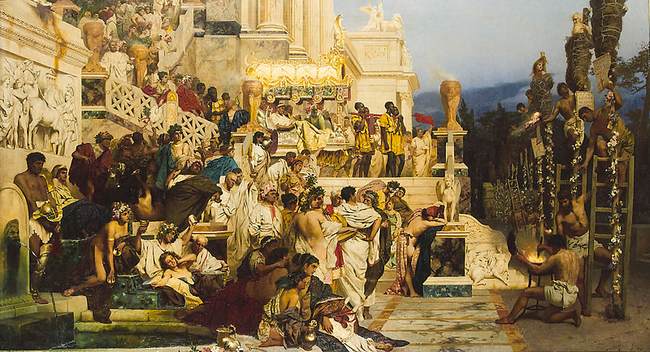- Feb 5, 2002
- 166,616
- 56,251
- Country
- United States
- Faith
- Catholic
- Marital Status
- Married
- Politics
- US-Others
Did early Christian martyrs choose to be burned alive during the Roman persecutions? Earlier today, David wrote about Leftists celebrating the bizarre suicide of Aaron Bushnell, done in nominal protest of US policy in the war between Hamas and Israel.
Continued below.
Continued below.


